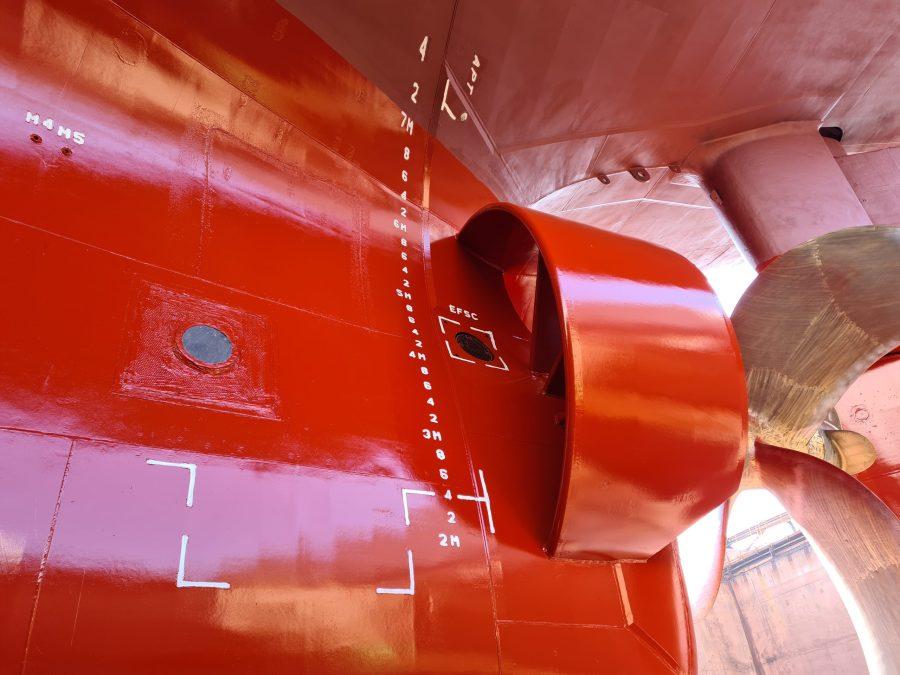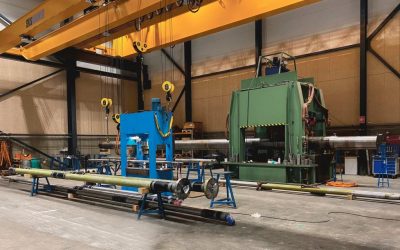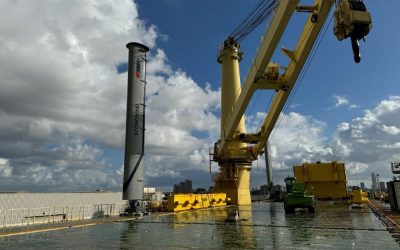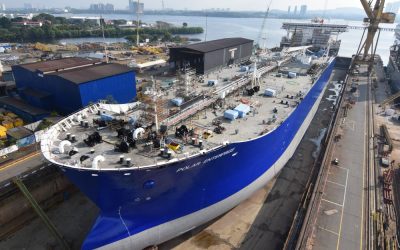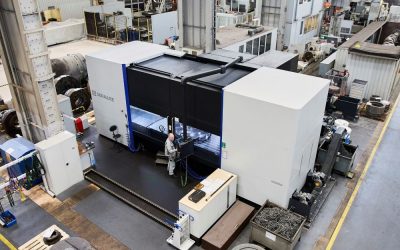Sharp reductions in GHG emissions are claimed for recently launched fouling release coating
As the latest addition to the established PPG Sigmaglide range of marine coatings, which has been widely used by vessel owners and operators for more than 30 years, PPG Sigmaglide 2390 is claimed to offer a number of significant benefits for ships in service, helping to lower power consumption and carbon emissions and meet demands for higher performance, with no adverse impact on the marine environment.
The biocide-free fouling release coating, launched earlier this year, is based on PPG’s HydroReset technology, which modifies the coating when it is immersed in water to create a very smooth, almost friction-free surface that marine organisms do not recognise and cannot adhere to.
According to PPG, third-party assessments have shown this this coating enables vessels to maintain a clean hull and reduce drag, achieving power savings of up to 20%, a speed loss performance of less than 1%, and up to 35% reduction in CO2 emissions in comparison to traditional antifouling coatings. As a result, PPG Sigmaglide 2390 can help owners and operators to meet targets for the reduction of greenhouse gas emissions (GHG) under the International Maritime Organization’s energy efficiency (EEXI and EEDI) and carbon intensity (CII) requirements, which went into effect this year, PPG points out.
PPG Sigmaglide 2390 is also considered suitable for electrostatic application, which provides high transfer efficiency, leading to lower paint consumption. In service, the coating can deliver up to 150 days of idle performance and an extended lifetime of more than 10 years with minimal maintenance requirements, the company says. This “unrivalled” fouling control performance is achieved with no release of biocides into the oceans.
Ariana Psomas, PPG segment director, newbuilding and drydocking, protective and marine coatings, says: “In addition to the increase in idle time, the ultra-smooth surface of PPG Sigmaglide 2390 results in immediate power savings and carbon reduction. In independent evaluations, the coating was found to have an instant beneficial effect on frictional resistance with the potential to lower carbon emissions by up to 20% through reduced power consumption. The coating’s ‘surface effect’ created by the PPG HydroReset technology and silicone composition offers an additional positive effect on speed loss equivalent to up to 15% reduction in carbon emissions.”
By combining the positive impacts of the improved frictional resistance, the increased fouling resistance and the surface release effect, PPG Sigmaglide 2390 is able to provide emissions reduction of up to 35% in comparison to traditional antifouling coatings. This is equivalent to up to a three-grade improvement in CII rating, PPG claims.
The regulatory landscape facing shipowners has become more complex with the introduction of EEXI and the CII. “As a leader in marine coatings technology, we are co-operating with the industry’s leading technical institutes to perform performance predictions for our customers, such as using computational fluid dynamics to analyse the performance of vessels coated with different coatings systems and technologies as well as monitoring subsequent vessel performance using high frequency vessel data. Our customers are already benefitting from these services and from PPG’s data-proven expertise to take informed decisions on coating system selections and maintenance to ensure the optimal performance of their vessels is achieved,” Psomas says.
“Informed and data-driven decisions are particularly important as the new greenhouse gas regulations and compliance with CII and EEXI require a high level of investment from shipowners. PPG can support the regulatory compliance decisions by building vessel-specific business cases and performing compliance sensitivity analyses,” she adds.
In partnership with independent hull efficiency experts, PPG has tested the speed loss performance for vessels using PPG Sigmaglide, following ISO 19030 methodology. The results are said to consistently show a speed gain of an average of 3% as compared to sea trials with other premium antifouling coatings, while the measured speed-loss results were consistently below 1% over the testing period.
